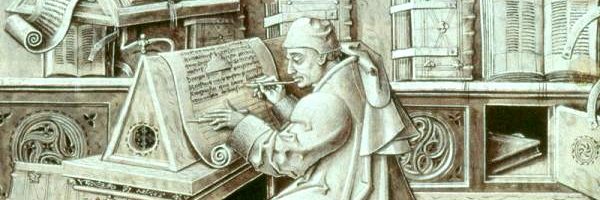I was perusing Chris Kutalik’s wonderful Hill Cantons blog when I ended up going down an intriguing rabbit hole of concepts like the Chaos Index and the World Engine, in the midst of this RPG blog deep dive I stumbled upon this 1988 article by Chris Engle, and I was completely enthralled.
So what is this article? Well, in it Chris describes an early version of something called a Matrix Game, a sort of argument-based and diceless roleplaying system that have become his trademark games, and all the materials on his website are worth checking out. But THIS particular proto-game from an article written before I was born stood out as something really special.
Chris calls this game ‘An institutional matrix game’ where all players begin controlling primitive cultures, represented by a set of needs (like ‘Food’ and ‘Social Organization’) with institutions to meet those needs (like ‘Hunting and Gathering’ and ‘Tribes’). Every turn, players may alter or create an institution, and then introduce problems within other players institutions. Finally, players make verbal arguments with the GM as to why there institutions are able to meet a problem, and if the GM accepts the argument, the problem is solved. There are also suggestions of players making actions on a game map like building villages or invading each other.

As I said, I was captivated, I wanted to get people together to play immediately. History has always been one of my passions, so the idea of a game that would let me watch the evolution of ancient societies had great appeal! So I quickly threw together a rudimentary river valley map, typed a somewhat more coherent rules reference document for my own use, and got my friends together to play that weekend.
I christened my creation, The Land of Grain and Metal, and I will be posting an account of that first game soon. Spoilers, it went quite well!

Here are the rules we played under, these are essentially an organized and slightly clarified version of the rules presented in Chris Engle’s original article.
Arguments:
- At the core of the game is the concept of the Argument. Arguments occur whenever the result of an action, interaction or endeavor must be decided upon. In situations where only one player is affected. They will make their argument to the GM, explaining how through their institutions, culture and history they are able to overcome a given problem, or perform a given action. The GM will have final say, but should consider all reasonable arguments, keeping in mind the tone and features of a given game. An argument involving multiple players will have each presenting their argument to the GM, each putting forward the result they desire and explaining how through their institutions, cultures and history they are able to achieve their desired result. The GM will then present the actual outcome (usually, but not always, incorporating some of the desires of both)
Basic Rules:
- The game is divided into a series of rounds of indeterminate length (could be years, months or even eons of unaccounted time) during which each player may perform a series of actions
- Each player must evolve an existing institution or create a new institution at the start of their turn. Explaining their reasoning to the GM.
- Each player may have their culture embark on an endeavour, an endeavour is some sort of great work or difficult enterprise that requires the contribution of many members of the culture. This could be a migration, an expedition, the founding of a city, engaging in warfare, etc, etc. Note that endeavours are ‘on map’ actions that do not change institutions.
- After evolving institutions, at least one player (different every round) must create a problem that is afflicting the institution of another player. The GM may select multiple players to create problems, or may introduce problems themself at this stage.
- Players then may make arguments as to how their institutions solve a given problem. Note that they may not have the proper institutions or type of institutions to solve a given problem and so will have to innovate next round.
- At the end of the round, the GM may introduce some event, problem or institution as they see fit, before moving on to the next round.
Oh, and please go check out game creator Chris Engles website and read some of his games, he also has more of his games available from his company Hamster Press. He’s a swell guy and even helped me out when I needed some advice on how to run his game!

